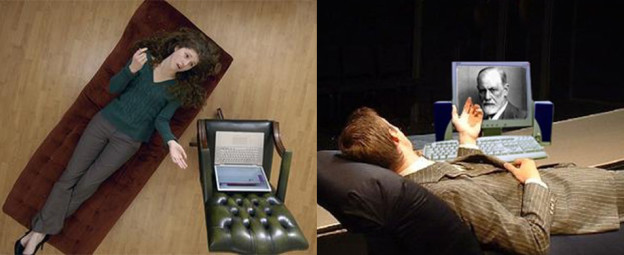‘…psychoanalysis would not have been what it was (any more than so many other things) if E-mail, for example, had existed. And in the future it will no longer be what Freud and so many psychoanalysts have anticipated, from the moment E-mail, for example, became possible.’
— Jacques Derrida, Archive Fever: A Freudian Impression (1995)
‘When can a screen relation substitute for the experience of being bodies together? When can it not?’
— Tod Essig, Foreword to Gillian Isaacs Russell, Screen Relations: The Limits of Computer-Mediated Psychoanalysis and Psychotherapy (2015)
Can you ‘do psychoanalysis’ by telephone, Skype, email? As Russell points out in her recent Screen Relations, the questions – fuelled by what she describes as ‘enchantment with technology, fear of professional obsolescence, and economic anxiety’ – are now urgent for the theory and practice of psychoanalysis. Questions of environment, contact, silence, connection, reliability, presence, access, embodiment, equality and diversity, professional survival … the list could go on.
In grappling with these issues, psychoanalysis is bringing its distinctive sensibility to bear on dilemmas that confront a range of professions (take, for example, academic concerns about the effect on students’ attendance of posting of lectures online) and diverse situations. What difference does it make being in a room with another person, or people? Can we make use of another’s mind if their body is not present? As Russell’s work makes clear, a psychoanalysis rooted in infantile experience is necessarily attentive to self states that go beyond words – to states of being as well as states of mind.
That psychoanalysis needs to engage with other disciplines in order to explore these issues is one of the starting-points of Russell’s book. Equally clear from reading it is psychoanalysis can make a unique contribution to our understanding of the impact of new digital technologies – our ‘screen cultures’ – on the experience of being human in the 21st century.
http://www.ipa.org.uk/en/IPA/Procedural_Code/IPA_POLICY_ON_REMOTE_ANALYSIS_IN_TRAINING.aspx
[Featured images from http://www.remotetherapy.net]

